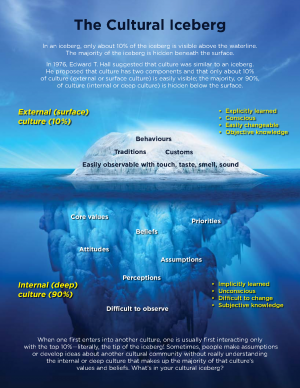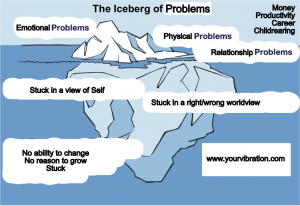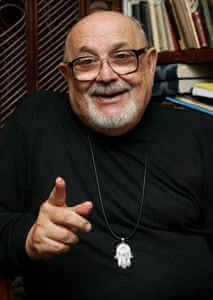Mysteries
The three great mysteries: air to a bird, water to a fish, mankind to itself.
But how do you look beyond yourself when you"re so… you? How does the fish recognize water when it"s all it"s ever known? How does it even learn to question the great invisible breath of life?
I have no answers, but maybe like the bird diving from the tree"s edge for the first time, we have to return to something similar to our youths to find ourselves. To find the answers to the mystery that is us maybe we have to go back and visit a time when we never were so sure, a time when we were not so certain in ourselves. A rebirth of sorts.
 All power comes from the invisible (to you) reality. The hard to see, the hard to pinpoint, the hard to communicate to others, reality.
All power comes from the invisible (to you) reality. The hard to see, the hard to pinpoint, the hard to communicate to others, reality.
My whole work, my life"s work is to dig out what is invisible with the eyes, what is difficult to sense with your other sensory organs.
I have trained myself to become as close to laser sharp as possible. I read books for that purpose, for the vocabulary. For the context. For how others think, feel, choose.
I am an empath. Being an empath, someone who retained every child"s ability to feel another"s feelings (animals have that!). They retained it because of some glitch (atavism? [note]atavism, atavistic:
- a tendency to revert to something ancient or ancestral."the more civilized a society seems to be, the more susceptible it is to its buried atavism"
- Biologyrecurrence of traits of an ancestor in a subsequent generation.
[/note]) in their personal development. Being an empath is frequent, and pretty much a dime a dozen.
It"s an instrument, like a piano standing in your house... you can sit down and hit the keys... but to expertly play the keys, to make real music takes a gazillion hours of training... most empaths haven"t done any of that kind of work.
Feeling is not enough. You have to "translate" those feelings to rich and accurate language. You have to have 256 shades of gray... You have to stick with the feelings, without interfering, without resistance, long enough so you can "see" what they are doing, how they are moving. Takes a certain kind of person...
I volunteered to be that kind of person.
Being an empath is a gift and it is a curse. I have learned to allow the feelings to be without them making me utterly miserable in the process.
The important element was to determine which feelings were mine, therefore a communication, and which feelings came from someone else.
Consider my own feelings as guidance, and analyze or ignore the feelings of others.
So this ability... 70 years in the making and fine-tuning, has lead me deep into the mystery of mankind.
Yesterday, for example, I sat with four students of mine, them in front of their computers, me in front of mine... and we started to dig.
 And we dug up some new aspects of the mystery of mankind...
And we dug up some new aspects of the mystery of mankind...Newton said that he was a giant because he stood on the shoulders of other giants... Did he say that? He wasn"t a very humble person... and neither am I. But I can, occasionally tell you standing on whose shoulders I got a glimpse of the mystery.
 This new puzzle piece came from Dr Popper, and a 5 minute video on youtube, from a talk some 10 years ago. Dr. Popper was a psychologist, a psychotherapist, and a religion psychologist... whatever that means... lol.
This new puzzle piece came from Dr Popper, and a 5 minute video on youtube, from a talk some 10 years ago. Dr. Popper was a psychologist, a psychotherapist, and a religion psychologist... whatever that means... lol.30 years of his career he dealt with children. And he observed the tendency of his little clients getting upset a lot. He observed their inability or unwillingness to tolerate any slight, any obstacle, any disappointment, any alteration of the scenario they considered "the way it should be"...
They wanted to win every game, they wanted to win every argument, and had no ability to lose. None.
He says, in the video, in Hungarian (I ought to translate it!) that we need to teach out children to get up after they fall on the floor, figuratively, of course.
But, of course, unless you, the parent, the teacher, the guru, are willing to fall down, your teaching is inauthentic, and the child won"t learn from you what you say, they will learn from you lying, cheating, pretending, faking it, etc.
Never learning that life is the way life is: you don"t have much if any control over it, and it is nature"s habit to slam you to the floor, or unexpectedly take you to breathtaking heights, for no reason at all.
Nature, life, is unpredictable. Too many moving parts...
The way to be in life is to allow life to take you, and make the best of it... Instead of trying to force your will on life.
 One way you force you try to force your will on life is by wanting to win, every time, in everything, every second.
One way you force you try to force your will on life is by wanting to win, every time, in everything, every second.
And you are surprised that you are bloody and bruised and you are not amounting to much.
Resisting life, wanting it to go your way. One of the ways of Life leaving you bruised...
 I can"t find the poem by an Indian chief that teaches you to go through life like going down the rapids full of boulders. You resist and you get slammed into every boulder on the way... until you die.
I can"t find the poem by an Indian chief that teaches you to go through life like going down the rapids full of boulders. You resist and you get slammed into every boulder on the way... until you die.My hunch is, that the opposite is also true: going limp in the rapids of life will not get you a life you can enjoy...
 The trick is to embrace, to co-create, to cause your life, and own that you can only cause what you can cause.
The trick is to embrace, to co-create, to cause your life, and own that you can only cause what you can cause.
Force doesn"t work well with life.
Causing and owning... choosing and owning your choice... Almost completely alien to people, to the majority.
Living life well requires you to have a level of maturity you don"t even have shown to you: you look at your leaders, parents, teachers: no maturity... no owning, no choosing, no responsibility.
So when we dig deep in our calls, me and my students, we are shown things we can see in others like ourselves, but no behavior, no one to model after... we have to invent ourselves to be someone who can, someone who will... even if we have never really seen anyone doing that.
Literary characters, maybe. Howard Roark, for example. Movies are not very useful, unless the character"s inner monolog, soliloquy [note]A soliloquy is a device often used in drama when a character speaks to him- or herself, relating thoughts and feelings, thereby also sharing them with the audience, giving off the illusion of being a series of unspoken reflections. Hamlet"s famous To be or not to be monolog is a soliloquy[/note] can be heard. How someone chose to do what they did. Because you need to hear yourself speak... so you can choose when to use the will and when to let go.
 So life can be an adventure... without being punished, humbled, frustrated every step of the way.
So life can be an adventure... without being punished, humbled, frustrated every step of the way.
To be able to choose which battles to fight, and which battles to let go.
To be comfortable falling on the floor, and getting up, without the EGO being bruised too much. So you can win the battles worth winning... and have a life worth living.
No comments:
Post a Comment